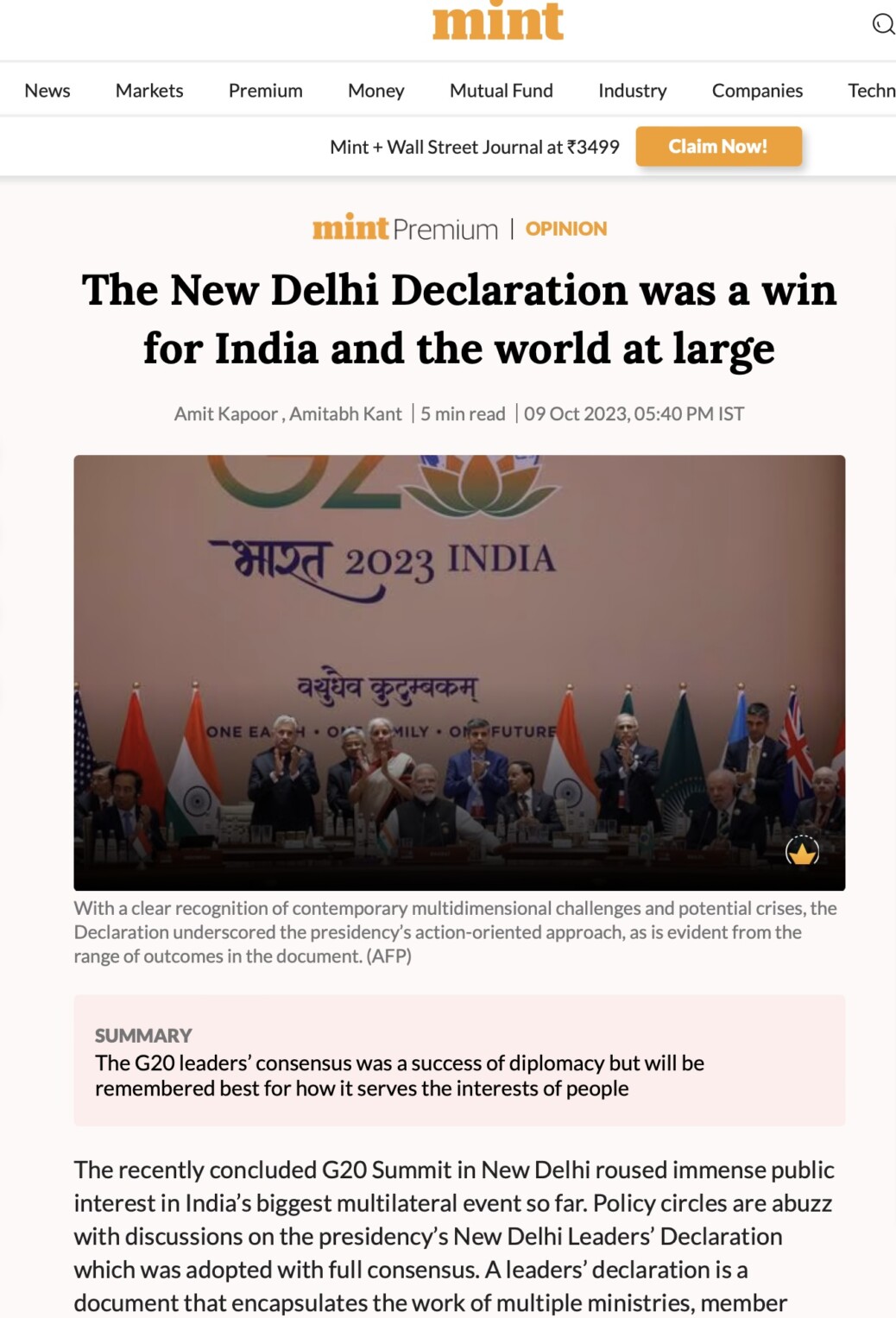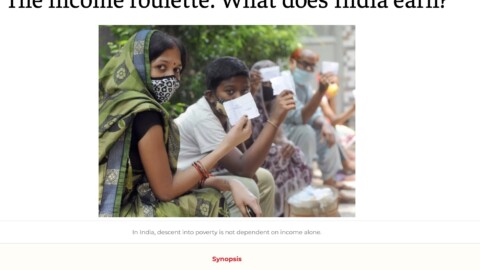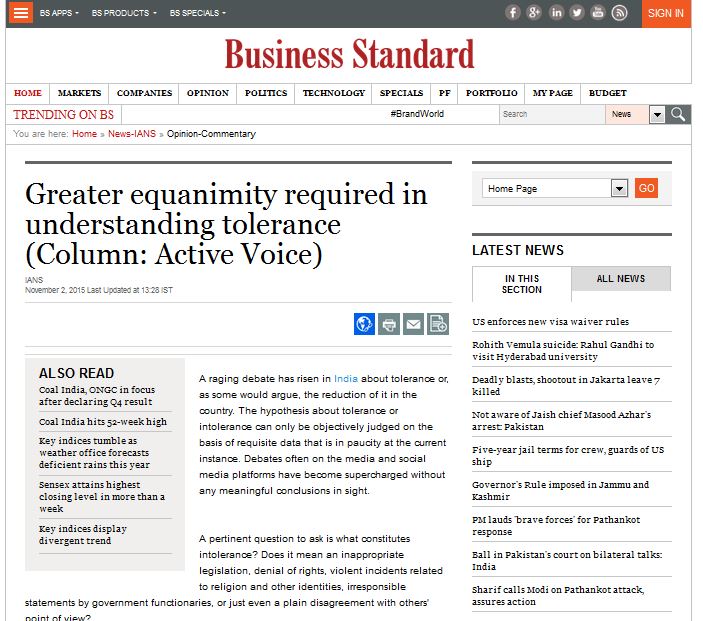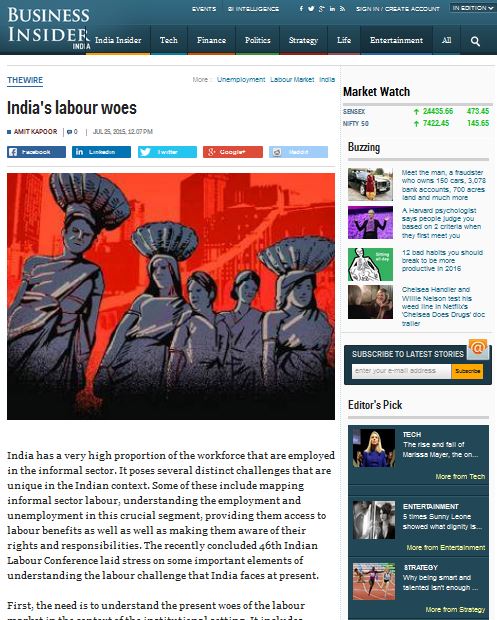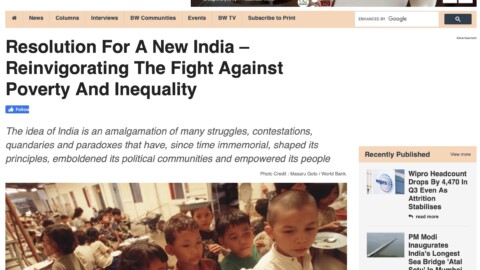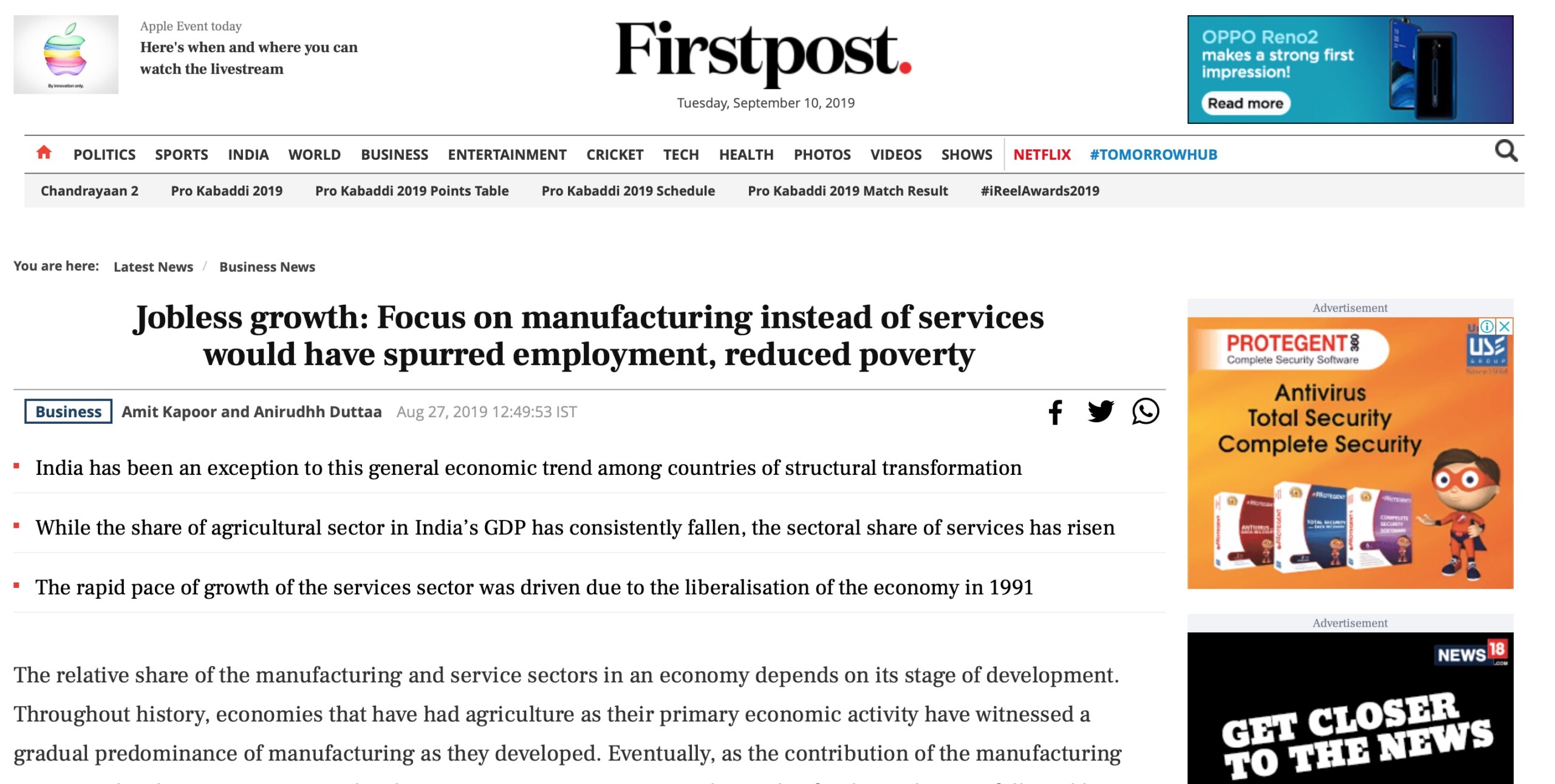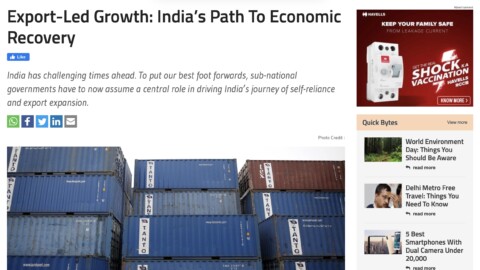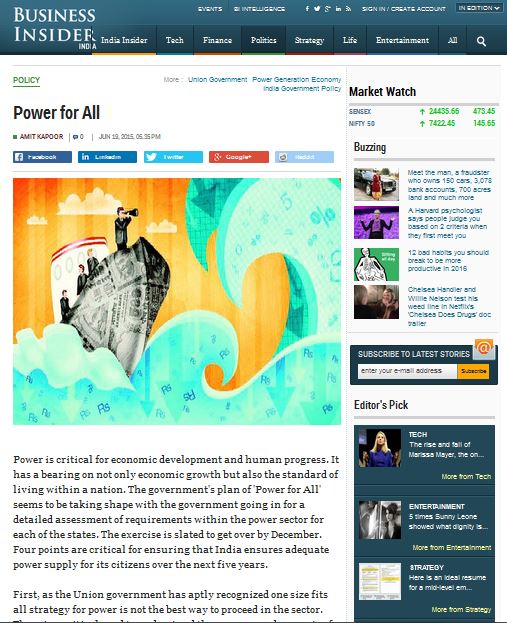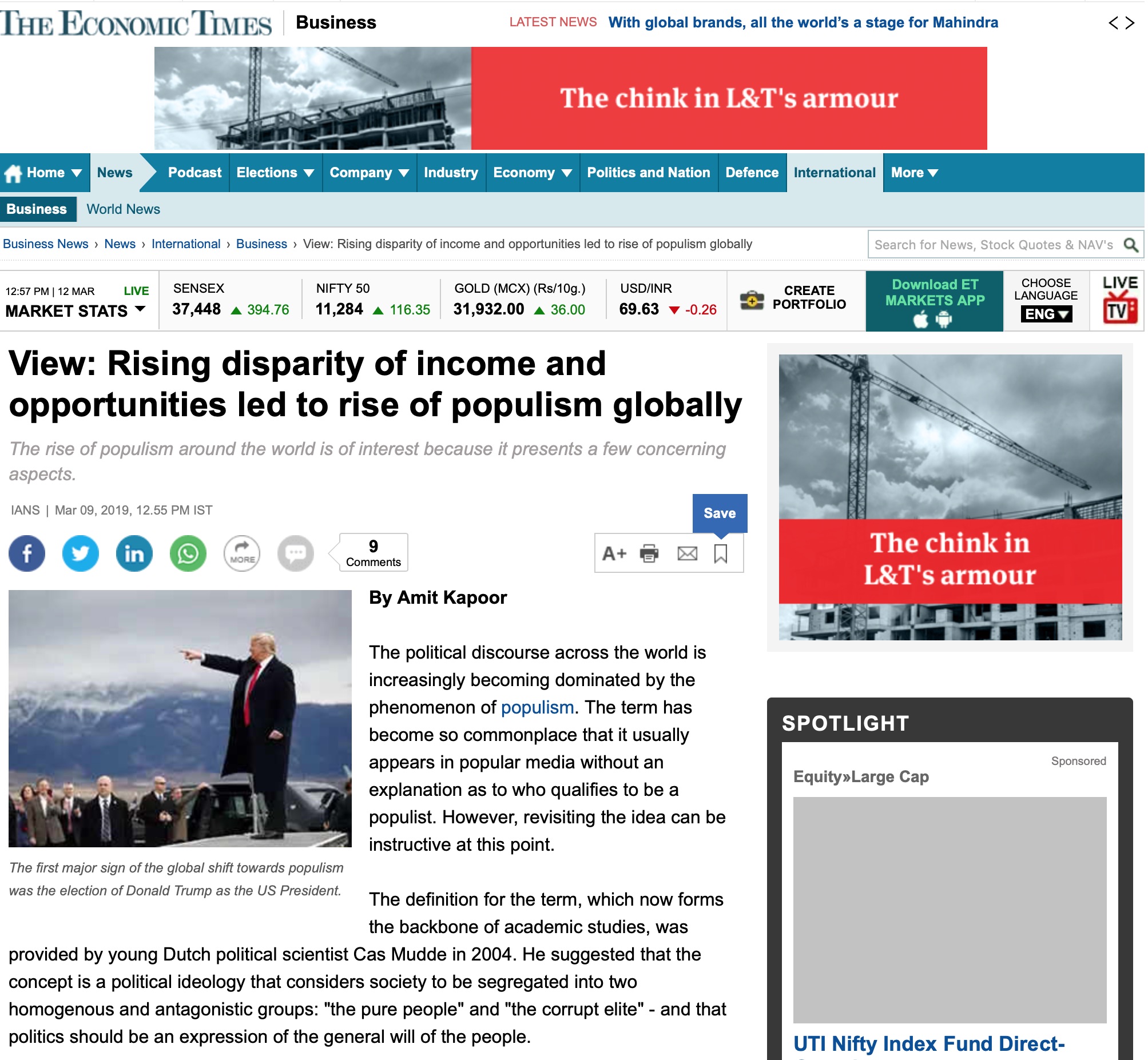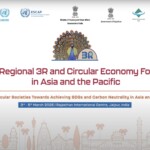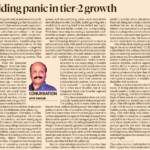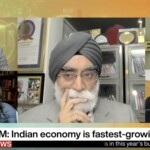By Amit Kapoor & Amitabh Kant
The recently concluded G20 New Delhi Summit roused immense public interest in India’s biggest multilateral event so far. Policy circles are abuzz with discussions on the Presidency’s New Delhi Leaders’ Declaration which was adopted with full consensus. A Leaders’ Declaration is a document that encapsulates the work of multiple Ministries, member countries, and knowledge partners, over hundreds of meetings throughout the year, discussing priorities of the Presidency and of the forum at large. The document is a statement coming from the Leaders of the G20 countries building a political momentum and sending out a common message to the word. It showcases the ability of the forum to rally together, despite vast differences, viewpoints and interests, to make common commitments towards issues of global concern. Each word in the declaration carries weight, and stems from multiple rounds of diplomatic negotiations.
The New Delhi Declaration is indeed a remarkable feat for India given the unique context in which we achieved it, and the strength of the outcomes attained. In the aftermath of the pandemic, marked by a fragmented geopolitical order, rising food and energy insecurity and debt distress, India played the role of an honest broker, and took concerted efforts to bring member nations on common ground on issues ranging from SDGs, combating Climate Change, Digital transformations, to strong, sustainable, balanced and inclusive growth. The term consensus carries immense weight considering that it had to be brought forth in a forum as diverse as the G20, and on an array of subjects that are of critical importance to all members. While the declaration showcases our collective strength to forge solutions for all countries, it has particularly factored in the interests and concerns of the developing world, in line with the Indian Presidency’s emphasis on amplifying the voice of the Global South.
With a clear recognition of the contemporary multidimensional challenges and potential crises, the Declaration underscored the Presidency’s action-oriented approach, as is evident from the range of outcomes that have come through in the document. Recognising the need for strong, sustainable, balanced and inclusive growth, the Declaration recognises start-ups and MSMEs as natural engines of growth. It endorses the G20 2023 Financial Inclusion Action Plan (FIAP) which aims to foster financial inclusion of individuals and MSMEs, particularly of the vulnerable and underserved groups in the G20 countries and beyond. The significance of trade for greater growth and prosperity is irrefutable. Given that about 70% of international trade today involves Global Value Chains (GVCs), the adoption of the G20 Generic Framework for Mapping GVCs to help member countries identify risks is an important deliverable. The adoption of the High-Level Principles on Digitalization of Trade Documents marks a significant step towards making global trade more efficient and accessible. Additionally, a critical forward-looking element stands out in the document’s emphasis on preparing for the future of work. It welcomes the comprehensive G20 Toolkit for designing and introducing digital upskilling and reskilling programmes.
India made accelerating progress towards Sustainable Development Goals one of its priorities. In a decade that went from being one of ‘action’ to one of ‘recovery’ in the field of attaining SDGs, Leaders’ commitment to implement the G20 2023 Action Plan to Accelerate Progress on the SDGs, including its High-Level Principles is an outstanding victory. The Declaration notes our Leaders’ commitment towards improving food security for one and all, in line with the G20 Deccan High-Level Principles on Food Security and Nutrition (FSN). Moreover, in the aftermath of the pandemic, it is particularly important to note the fact that the Declaration has supported the development of an Interim Medical Countermeasures (MCM) Coordination Mechanism for enabling accountable and timely access to safe, effective, quality, and affordable medical countermeasures including VTDs (Vaccines, Therapeutics & Diagnostics). On the Health aspect, the Declaration also recognises the potential role of evidence-based Traditional and Complementary Medicine. Considering India’s long history of traditional medicine, this is indeed a notable achievement.
In recent years, Digital Public Infrastructure has proven to be a powerful force that has enhanced public service delivery, and India has exemplified this. Welcoming the G20 Framework for Systems of Digital Public Infrastructure, the Global Initiative on Digital Health (GIDH) and recognising the importance of harnessing Artificial Intelligence (AI) responsibly, are some flagship deliverables in the technological transformation arena.
One of the key successes of the Declaration is its push for a reinvigorated multilateralism by recalling the United Nations resolution 75/1, a first in the G20; pushing for better, bigger, and more effective Multilateral Development Banks and the need for enhancing the representation and voice of developing countries in decision-making international financial institutions. By welcoming the African Union as a G20 Permanent Member in its Presidency, India’s G20 Presidency has walked the talk in terms of enhancing representation in global fora.
Climate and Environment is another significant area that the Declaration has taken commendable strides in. In a first, G20 has agreed to pursue efforts towards tripling the renewable energy technologies capacity globally in line with national circumstances, by 2030. Leaders have noted the Presidency’s report on “Low-cost Financing for the Energy Transitions “and its estimated requirement of an annual investment of over USD 4 trillion for the world. Additionally, the document affirms the ‘G20 High Level Voluntary Principles on Hydrogen’, thus taking the world a step closer to a sustainable and equitable global hydrogen ecosystem. While Leaders have noted peaking of global GHG emissions by 2025, they have done so keeping in the different needs of sustainable development. Furthermore, Leaders have recognised the G20 High-Level Principles on Lifestyles for Sustainable Development (LiFE), and committed to mainstream Lifestyles for Sustainable Development. Financial resources are a prerequisite for nations to tackle climate change successfully. The need is particularly greater for countries in the Global South. The fact that the New Delhi Leaders’ Declaration recognised the need to scale up investment and climate finance from billions to trillions of dollars globally from all sources is a resounding win for the world.
Disaster Risk Reduction, a new Working Group launched by the Indian Presidency, has found resonance across the forum. Yet another crucial ‘first’ that the New Delhi Declaration brought forth is the creation a new Working Group on Empowerment of Women which will be convening its first meeting during the Brazilian G20 Presidency next year. From ‘women-led development’ being our priority area at the outset of our Presidency to bringing consensus on the creation of this Working Group, India’s G20 Presidency has traversed a long, fruitful, and meaningful trajectory.
India’s G20 Declaration is a culmination of over 200 meetings in 60 cities and discussions in 39 tracks involving record in-person participation by over 25,000 delegates representing over 120 nationalities. Along with our diplomatic, substantive, and logistical prowess, India relied on its people’s participation to pull this off, making the New Delhi Declaration its people’s victory too.
The article was published with Mint on October 9, 2023
